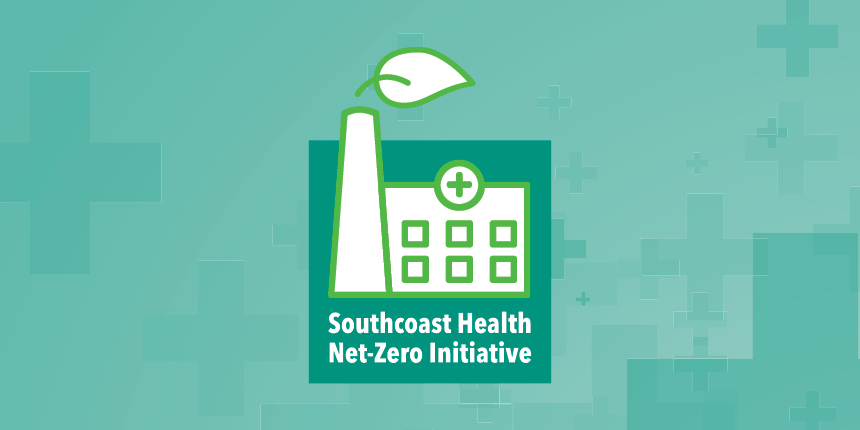News Releases
Southcoast Health Recognized by the White House for Sustainability Efforts

On April 22, the U.S. Department of Health and Human Services (HHS) recognized Southcoast Health for its public commitments to decarbonizing its operations and improving resilience in the face of climate change.
As part of the 2023 United Nations Climate Change Conference (COP28), HHS shared that Southcoast Healthwas one of more than 130 organizations that joined the White House-HHS Health Sector climate pledge, committing to align with the Biden administration’s goal of reducing emissions by 50 percent by 2030 and achieving net zero emissions by 2050.
“We are so proud to be a part of this initiative, and being one of the initial organizations to sign the pledge two years ago was a natural step,” said Phil Oliveira, Vice President Supply Chain Strategy & Logistics and Executive-level Sustainability Lead at Southcoast Health. “For years, many of our efforts have been focused on reducing our environmental impact. Now that 2030 is only six years away, we are excited for the challenge to achieve our 50 percent carbon emission reduction pledge.”
Since making this commitment, Southcoast Health is focusing on leading this conversation across the industry. By assessing the health system’s emissions data, collaborating with the U.S. Department of Health and Human Services Office of Climate Change and Health Equity (OCCHE), and other healthcare systems, strategic sourcing partners and the community, their goal is to enable bigger thinking and inspire action towards a lower carbon footprint.
A September 2021 consensus statement from more than 200 medical journals named climate change the number one threat to global public health. It exposes millions of people in the United States to harm every year—with disproportionate impacts on communities that are often already the victims of longstanding discrimination—through increases in extreme heat waves, wildfires, flooding, vector-borne diseases and other factors that worsen chronic health conditions. The healthcare sector also contributes to climate change itself, accounting for approximately 8.5 percent of U.S. domestic emissions.
In 2023, Southcoast Health quantified their emissions at 19,304 tons CO2e, a 15 percent reduction from their 2011 peak emissions of 22,761 tons CO2e.
Earlier this spring, Southcoast Health was recognized by OCCHE for their leadership in this area and Nicole Rosa, Director of Sustainability, Supply Chain Logistics and Program Management at Southcoast Health was asked to present as a mentor at the at the HHS Office of Climate Change and Health Equity Catalytic Program’s break out session on March 14, 2024. Presenting at the event, she shared her experience evaluating projects against the Inflation Reduction Act (IRA) and expressed how the HHS pledge closely aligns with Southcoast Health’s mission and values.
“Signing the climate pledge made so much sense for us,” she said. “We were already environmentally conscious, and felt it was a natural extension of our existing efforts. Our vision is to expand our partnerships with other organizations to limit the harm of climate change in our neighborhoods as well as the broader healthcare industry.”
The HHS Office of Climate Change and Health Equity (OCCHE), part of the Office of the Assistant Secretary for Health, developed the White House/HHS Health Sector Climate Pledge to help focus industry response to climate challenges.
To date, 139 prominent health companies in the U.S. have signed the White House/HHS Health Sector Climate Pledge, including organizations representing 943 hospitals as well as leading health centers, suppliers, insurance companies, group purchasing organizations, pharmaceutical companies and more. Combined, this means that more than 1,180 federal and private sector hospitals have made such commitments, together representing more than 15 percent of U.S. hospitals.
To learn more about Southcoast Health’s journey to a sustainable future visit www.southcoast.org/southcoast-health-sustainable-future/.
